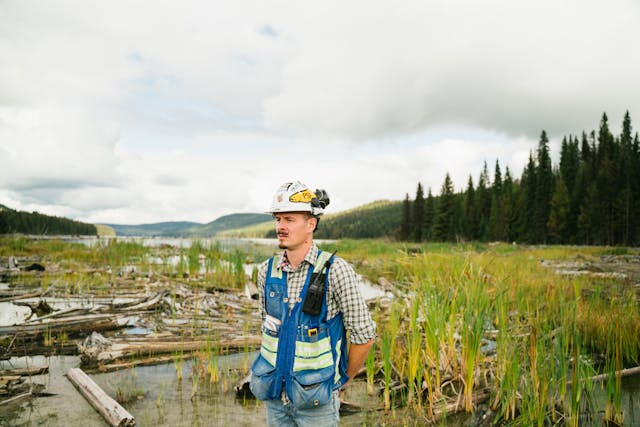An environmental career constitutes any job that encourages conservation and positively impacts the environment. The profession is perfect for those passionate about protecting and caring for the environment. Understanding why joining this field is worth considering can help you make an informed career choice. Discussed below are four compelling reasons to consider an environmental career.
1. The demand for skilled environmental professionals is rising
As the business sector implements environmental conservation and sustainability practices, the demand for environmental professionals is rising. Statistics suggest that the employment of environmental scientists and specialists is expected to grow by 6% from 2022 to 2032, with an average of around 6,900 openings projected every year over the decade. Most of these openings will be as a result of the following:
- The need to replace employees who move to different occupations or leave the labor force
- Increased public interest in the dangers facing the environment is expected to raise the demand for environmental professionals. These professionals will continue to be required to evaluate environmental issues and come up with solutions that guarantee communities’ health
- Organizations are expected to keep consulting environmental professionals to help minimize their operations’ impacts on the environment. Other specialists will be required to assist planners to develop and build transportation systems, buildings, and utilities that safeguard natural resources while limiting damage to the land
Obtaining an environmental science degree from an accredited institution can help you contribute toward meeting the high demand for skilled environmental professionals.
2. Promote public health
Skilled environmental specialists use their natural science knowledge to safeguard the environment while promoting public health. These professionals provide solutions to various environmental issues, including carbon emissions and biodiversity loss, reducing hazards. For example, most environmental specialists work to reclaim lands and waters that were pollution-contaminated years back.
Other environmental specialists evaluate the risks new construction projects are likely to pose and then make suggestions on how to reduce their environmental impacts. Environmental health specialists can also help local populations learn how to lower their environmental effects on local waterways and prevent diseases.
3. Multiple career pathways
There are various environmental career pathways for anyone seeking to join the profession. They include:
- Environmental management: Professionals in this pathway are required to understand conservation and ecology because they work to protect wildlife and preserve ecosystems
- Green technology and renewable energy: This pathway focuses on the development and application of clean energy solutions
- Engineering and development: Here, environmental engineers develop solutions to resolve environmental challenges like resource conservation and pollution control
- Environmental law and policy: Experts in this area influence environmental laws and champion sustainable practices
These career pathways have different majors to consider. When selecting a major, consider your career goals and personal interests.
4. To help fight climate change
An environmental career can help address the effects of climate change on the planet. If you have the desire to fight climate change, consider the following careers:
- Environmental lawyer: You’ll represent NGOs, companies, or individuals in legal matters concerning the environment, such as water rights, climate change, or land use
- Environmental engineer: You’ll identify environmental issues and come up with plans to resolve them
- Renewable energy engineer: You’ll work on how to acquire energy from renewable sources such as water, wind, and sun

Skills and Qualifications
Educational Requirements
Most environmental careers require at least a bachelor’s degree in a relevant field, such as environmental science, biology, engineering, or public policy. Advanced positions may require a master’s degree or Ph.D., especially for roles in research, academia, and high-level policy development.
Key Skills
- Analytical Skills: Ability to analyze complex data and develop evidence-based solutions.
- Problem-Solving Skills: Aptitude for identifying problems and creating innovative solutions.
- Communication Skills: Proficiency in conveying information clearly to diverse audiences.
- Technical Skills: Familiarity with tools and technologies used in environmental research and management.
- Project Management Skills: Ability to manage projects, including budgeting, scheduling, and coordinating with stakeholders.
Career Outlook and Opportunities
The environmental sector is growing, with increasing job opportunities across various industries. According to the U.S. Bureau of Labor Statistics, employment of environmental scientists and specialists is projected to grow 8% from 2020 to 2030, faster than the average for all occupations. The push for renewable energy, sustainable practices, and climate resilience drives this growth.
Endnote
An environmental career can be quite fulfilling. Familiarizing yourself with the reasons to join this field, including rising demand, promoting public health, multiple career pathways, and more, can help you determine if it’s a profession worth considering.




